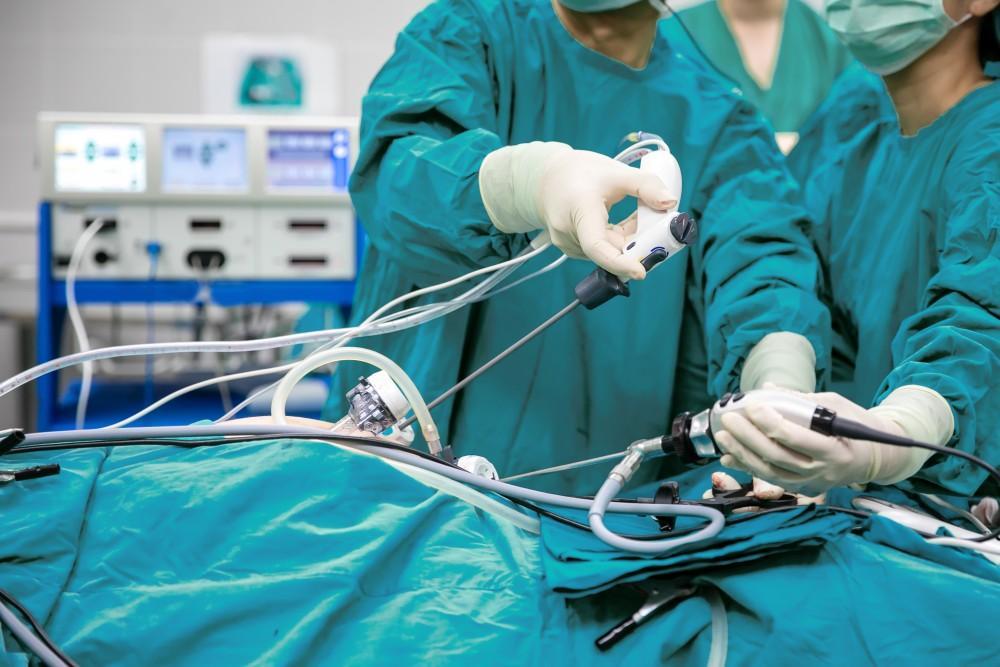
Why Minimally Invasive Laparoscopic Surgery Is Such a Great Option

Laparoscopic surgery is a minimally invasive surgical approach that has many advantages over traditional open surgery. The surgeons at Rockwall Surgical Specialists are experts in minimally invasive laparoscopic surgery and offer patients the latest advancements in this technique.
Learn the benefits of laparoscopic surgery and why it’s a great option for a wide variety of surgical procedures, including gallbladder removal, weight loss surgery, hernia repair, reflux surgery, and more.
Laparoscopy versus open surgery
Traditional open surgery requires a large incision to expose the tissue so the surgeon can perform the operation. With laparoscopic surgery, the surgeons make small incisions, often referred to as keyholes, to gain access to the surgical site using small tools that fit through the incisions.
A laparoscope — special instrument with a tiny lighted video camera attached — is used to examine tissues and organs, and specially designed tools perform the necessary surgical maneuvers. Carbon dioxide is often used to inflate the cavity where surgery is performed, giving the surgeon better visibility and more room to work and protecting vital organs.
Lower risk of complications
All surgeries come with risks; however, patients who undergo traditional open surgery are at risk for complications such as excess bleeding because of the size of the incision. If a patient experiences excessive bleeding, a transfusion may be necessary to manage blood loss. Because laparoscopic surgery involves making small incisions, there’s a lower likelihood of bleeding complications.
The large incision made during traditional open surgery also increases the risk of infection and is vulnerable to herniation during the healing process, especially in patients who are overweight or obese. Performing a surgery laparoscopically reduces these risks.
Less pain postoperative pain
Making a large incision to expose tissues means that patients experience greater pain following traditional open surgery and may require medication to manage pain and remain comfortable during recovery. The smaller incisions made during laparoscopic surgery reduce postoperative and recovery pain, reducing the need for powerful pain medication.
Better aesthetic results
Traditional open surgery can result in a significant amount of scar tissue after the healing process is complete. Such surgical scars often measure several inches, making them more noticeable. The laparoscopic approach results in smaller scars, less scar tissue and better overall aesthetic results.
Shorter recovery
The body needs more time to heal following traditional open surgery — both in the hospital and at home. Patients must typically restrict their activities for several weeks following traditional open surgery to prevent complications at the incision site.
Laparoscopic surgery carries a much lower risk of hernias and other incision site complications. Patients who undergo laparoscopy have a shorter hospital stay and are out of bed and back to their regular activities much sooner, including being able to exercise and lift much more quickly than patients who’ve undergone open surgery.
Many patients who choose laparoscopic surgery are back to work within days rather than weeks. This makes it unlikely that you need to take extended time off from work.
What surgeries can be performed laparoscopically?
The expert surgeons at Rockwell Surgical Specialists have honed their craft and perform various surgeries laparoscopically, including:
- Gallbladder removal
- Gastric sleeve
- Hernia repair
- Appendix removal
- Reflux surgery
- Colon resection for cancers or diverticulitis
Laparoscopic surgery offers major benefits over traditional open surgery, making it a great option. If you’re facing surgery, find out more about the laparoscopic options available to our patients by calling one of our four locations to schedule a consultation. You also can book an appointment online.
You Might Also Enjoy...


Is It Time for Your Colonoscopy?

Why Your Weight and BMI Are Important Barometers of Your Overall Health

When Does a Hiatal Hernia Require Surgery?

5 Compelling Benefits of Laparoscopic Surgery

